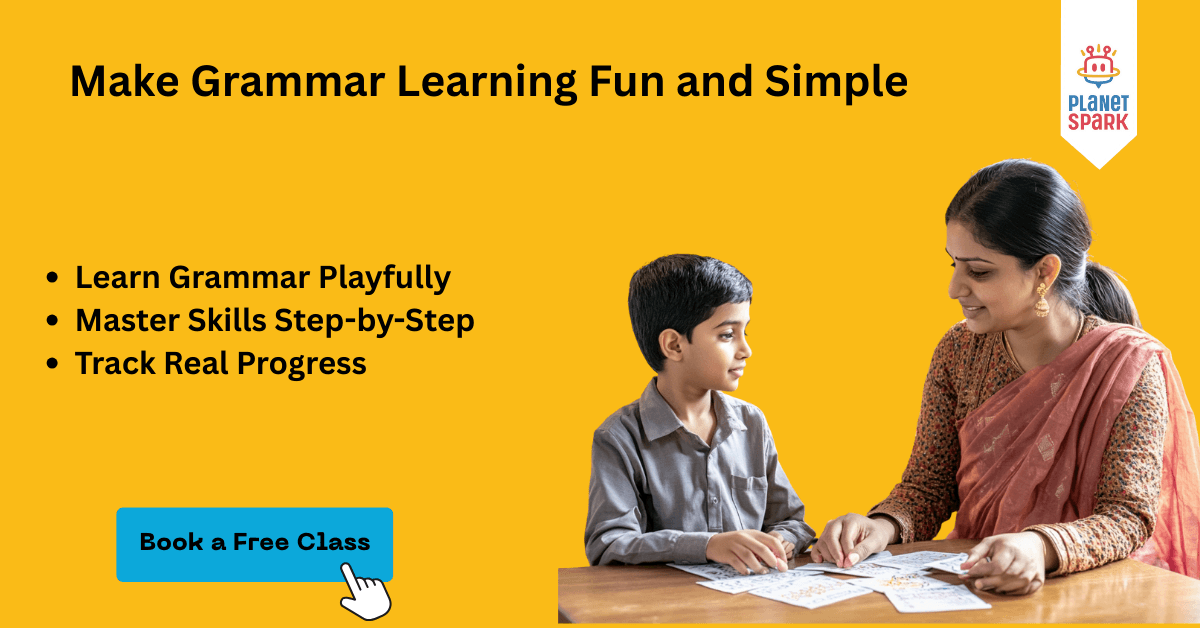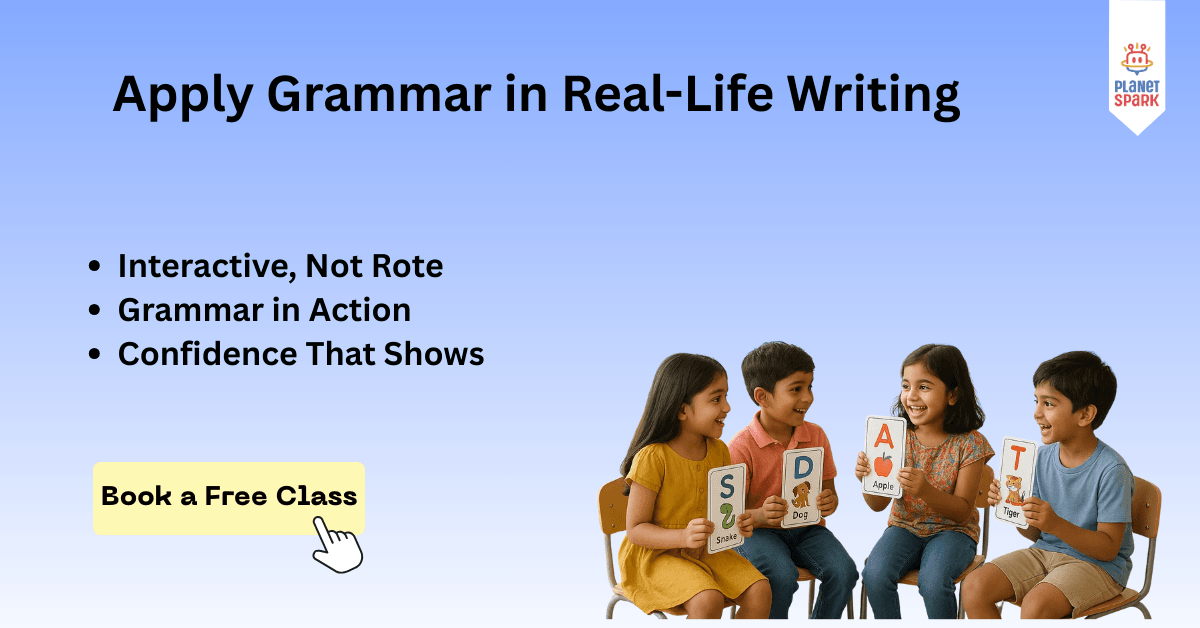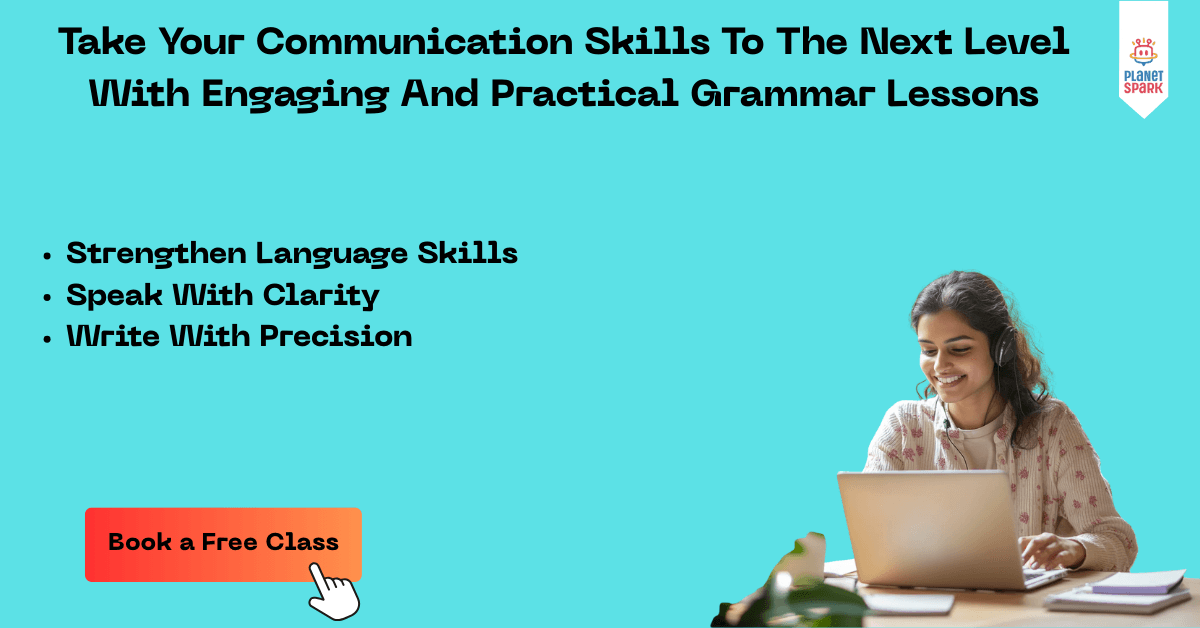Correlative Conjunctions: Definition, Examples, and Exercises

Table of Contents
- What is a Correlative Conjunction?
- Why Are Correlative Conjunctions Important?
- Correlative Conjunctions List
- Correlative Conjunctions Examples
- Rules for Using Correlative Conjunctions
- Correlative Conjunctions Examples Sentences
- Correlative Conjunctions Exercises
- Correlative Conjunctions Worksheets
- Common Mistakes with Correlative Conjunctions
- Correlative Conjunctions in Literature and Everyday Use
- Learn English Grammar with PlanetSpark
- Frequently Asked Questions (FAQs)
Language is powerful because it allows us to connect ideas, show relationships, and express complex thoughts. One important way we do this in English is through correlative conjunctions. These special pairs of words help us balance ideas and make our writing or speaking sound smooth and logical.
In this detailed guide, you’ll learn:
What correlative conjunctions are
Correlative conjunctions definition with examples
Common correlative conjunctions list
How to use them correctly in sentences
Examples of correlative conjunctions in everyday life
Exercises and worksheets to practice
By the end, you’ll not only understand correlative conjunctions but also be able to use them confidently in your writing and conversations.
What is a Correlative Conjunction?
A correlative conjunction is a pair of words that work together to connect two balanced ideas or elements in a sentence. They function in pairs to join words, phrases, or clauses that have equal importance in meaning or structure.
Correlative Conjunctions Definition
Correlative conjunctions are conjunction pairs that join similar grammatical elements and create balance in a sentence.
Example:
Either you study hard or you face the consequences.
Not only is she talented but also hardworking.

Why Are Correlative Conjunctions Important?
They make sentences more organized and logical
They help create emphasis and show balance
They add variety and richness to writing
They are used in both formal and informal English
Correlative Conjunctions List
Here is a list of common correlative conjunctions you’ll frequently encounter in English grammar:
Either…or
Neither…nor
Both…and
Not only…but also
Whether…or
No sooner…than
Rather…than
Such…that
Scarcely…when
As…as
Master English Grammar with PlanetSpark
Correlative Conjunctions Examples
Let’s look at how each of these works in sentences:
Either…or
You can either have tea or coffee.
Either we leave now or we miss the train.
Neither…nor
She likes neither apples nor bananas.
Neither the teacher nor the students were ready.
Both…and
He is both intelligent and creative.
She enjoys both reading and writing.
Not only…but also
He is not only smart but also hardworking.
The movie was not only entertaining but also educational.
Whether…or
I don’t know whether he will come or not.
She was confused about whether to stay or leave.
No sooner…than
No sooner had I reached the station than the train left.
Rather…than
I would prefer coffee rather than tea.
Such…that
It was such a hot day that we stayed inside.
Scarcely…when
Scarcely had he arrived when it started raining.
As…as
She is as tall as her brother.
Unlock Your Child’s Grammar Confidence
Rules for Using Correlative Conjunctions
Maintain Parallel Structure
Both parts of the sentence should be grammatically similar.
❌ She likes both dancing and to sing.
✔ She likes both dancing and singing.
Use Them in Pairs
They always come in pairs.
❌ He will eat either pizza.
✔ He will eat either pizza or pasta.
Keep the Subject-Verb Agreement
The verb must agree with the subject closest to it.
Neither the teacher nor the students are ready.
Either my friends or my sister is coming.
Avoid Redundancy
❌ Whether or not she comes or not, I will go.
✔ Whether she comes or not, I will go.

Correlative Conjunctions Examples Sentences
Either you respect others or you cannot expect respect.
Neither money nor fame made him happy.
Both children and adults enjoyed the show.
Not only did she complete her homework but also helped her friend.
Whether you win or lose, keep trying.
No sooner had I sat down than the bell rang.
I would rather read books than watch TV.
Such was his talent that everyone admired him.
Scarcely had he entered when the lights went out.
She is as kind as her mother.
Not only learn rules but also practice real conversations
Correlative Conjunctions Exercises
Exercise 1: Fill in the Blanks
She is ______ talented ______ hardworking.
______ you study hard ______ you will fail.
He can ______ play cricket ______ football.
______ the students ______ the teacher were present.
I would rather sleep ______ watch TV.
Answers
both…and
Either…or
either…or
Neither…nor
than
Exercise 2: Correct the Sentences
She likes either apples and oranges.
Neither he or his brother is responsible.
Both she as well as her sister are doctors.
Answers
She likes either apples or oranges.
Neither he nor his brother is responsible.
Both she and her sister are doctors.
Correlative Conjunctions Worksheets
Teachers and parents often use worksheets to help children practice grammar concepts. A correlative conjunctions worksheet may include:
Matching exercises
Fill-in-the-blanks
Sentence correction tasks
Short paragraph writing using correlative conjunctions
These worksheets help children apply rules in real-world examples and improve grammar skills.
Boost Writing, Speaking, and Grammar Skills
Common Mistakes with Correlative Conjunctions
Mixing pairs incorrectly
❌ Either she will go nor stay.
✔ Either she will go or stay.Forgetting parallel structure
❌ He is not only talented but also he works hard.
✔ He is not only talented but also hardworking.Using singular/plural incorrectly
❌ Neither my friends nor my teacher are going.
✔ Neither my teacher nor my friends are going.
Correlative Conjunctions in Literature and Everyday Use
In speeches: “We must not only dream but also act.”
In literature: “She was as brave as a lion.”
In everyday talk: “I will come whether it rains or not.”

Learn English Grammar with PlanetSpark
At PlanetSpark, we believe grammar should never feel boring or confusing. That’s why our English Grammar Course is designed to be interactive, practical, and fun for kids. Instead of just memorizing rules, children learn through stories, games, real-life examples, and guided practice. This makes tricky topics like correlative conjunctions simple to understand and easy to apply.
What Makes PlanetSpark’s Grammar Course Unique?
Interactive Live Classes – Every session is taught by certified and experienced teachers who focus on engagement, not rote learning. Kids participate in discussions, activities, and real conversations.
Structured Learning Path – Lessons progress from simple to advanced concepts, ensuring kids build a strong grammar foundation step by step.
Gamified Learning Experience – Quizzes, grammar puzzles, and interactive games make learning exciting while improving retention.
Real-World Practice – Children practice grammar in speaking and writing activities that relate to schoolwork, storytelling, and everyday communication.
Small Group Attention – With limited batch sizes, each child gets personalized guidance, doubt-solving, and feedback.
Worksheets and Practice Material – Engaging worksheets, assignments, and practice sheets reinforce classroom learning at home.
Progress Tracking for Parents – Parents receive regular updates on their child’s performance and growth, so they stay informed at every step.
Why Choose PlanetSpark for Grammar Learning?
Focus on confidence-building along with accuracy
Blends academic excellence with creativity and communication skills
Helps children become better at writing essays, speaking fluently, and using grammar naturally
Prepares kids for school exams, interviews, and future opportunities
Backed by proven results with thousands of successful learners
At PlanetSpark, grammar is not just about rules, it’s about empowering children to think, write, and express themselves clearly.
Transform Grammar Learning from Boring to Fun
Frequently Asked Questions (FAQs)
1. What are correlative conjunctions in grammar?
Correlative conjunctions are pairs of conjunctions that join two equal parts of a sentence, creating balance and connection.
2. What is the main difference between correlative and coordinating conjunctions?
Coordinating conjunctions are single words like and, but, or. Correlative conjunctions work in pairs like either…or, both…and.
3. Can you give 10 examples of correlative conjunctions?
Yes: either…or, neither…nor, both…and, not only…but also, whether…or, rather…than, no sooner…than, scarcely…when, such…that, as…as.
4. How do I know if I’m using correlative conjunctions correctly?
Check for parallel structure. Both parts of the sentence should have the same grammatical form.
Example: She likes both singing and dancing.
5. Are correlative conjunctions formal or informal?
They are used in both formal and informal English.
Example: In essays: Not only is education essential but also empowering.
6. Do correlative conjunctions affect subject-verb agreement?
Yes. The verb usually agrees with the subject closest to it.
Example: Neither the teacher nor the students are present.
7. What are some common mistakes when using correlative conjunctions?
Mixing incorrect pairs (Either…nor instead of Either…or)
Breaking parallel structure (She likes both to dance and singing)
Forgetting the second half of the pair
8. Can correlative conjunctions join more than two ideas?
They usually connect two ideas, but they can sometimes extend to three when balanced.
Example: She is not only intelligent but also kind and hardworking.
9. How can I teach kids correlative conjunctions easily?
Start with simple pairs like either…or and both…and. Use real-life examples, worksheets, and fun activities like fill-in-the-blanks.
10. Why are correlative conjunctions important in writing?
They make sentences smoother, more logical, and well-balanced, which improves both clarity and flow in communication.
Personalized Communication Report
Record a video to get a AI generated personalized communication report for your child

Hi There, want to try these
tips for your child with
LIVE with our expert coach?
Let's check your child's
English fluency
